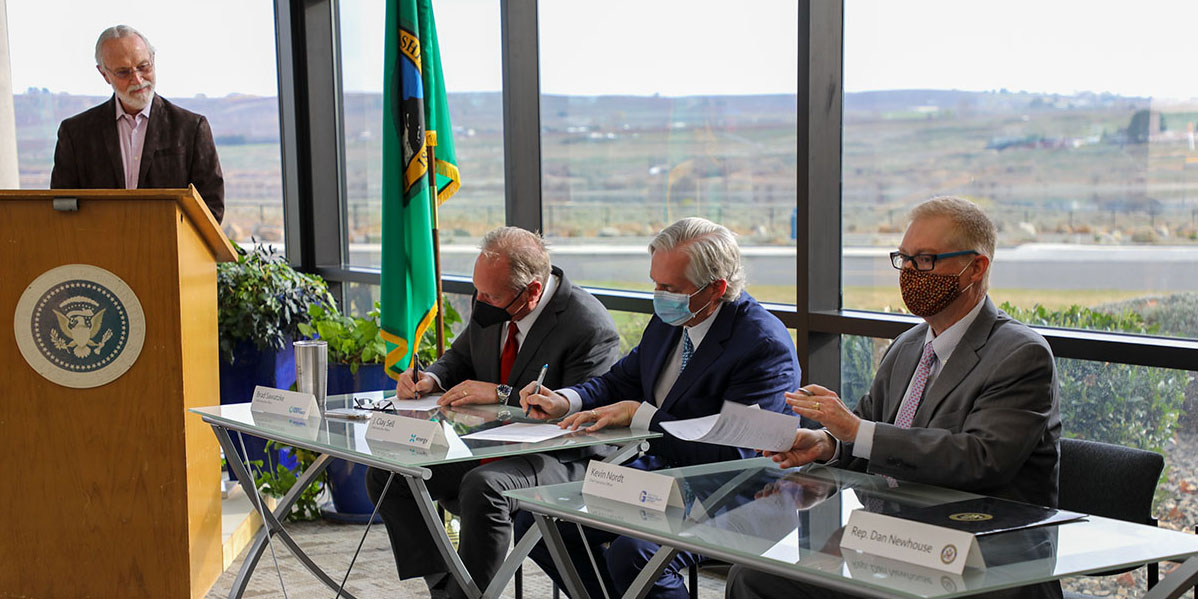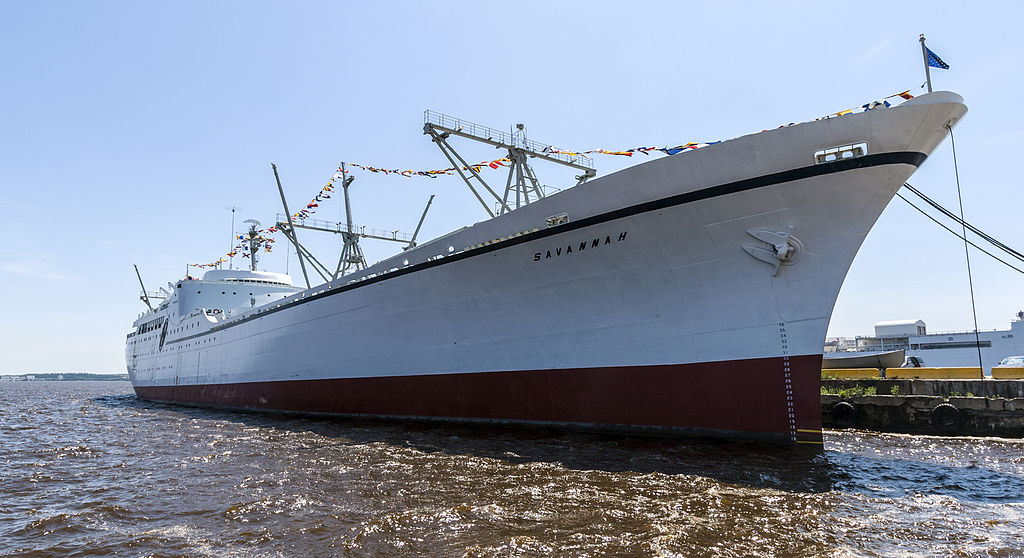(Click photo to enlarge) One of 16 AC100M gas centrifuges built by Centrus Energy for HALEU production in Piketon, Ohio. (Photo: Centrus Energy)
For years, pressure has been building for a commercial path to a stable supply of high-assay low-enriched uranium (HALEU)—deemed essential for the deployment of advanced power reactors—but advanced reactor developers and enrichment companies are still watching and waiting. In contrast, the uranium spot price soared after Sprott Physical Uranium Trust, a Canadian investment fund formed in July, began buying up U3O8 supplies, causing the price to increase over 60 percent, topping $50 per pound for the first time since 2012. Fueled by growing acknowledgment that nuclear power is a necessary part of a clean energy future, uranium is the focus of attention from Wall Street to Capitol Hill.
The EBR-II sodium fast reactor at Idaho National Laboratory began operations in 1964 and generated electricity for decades. Soon it will serve as a National Reactor Innovation Center test bed for future advanced reactor demonstrations. (Source: ANL)
At the box office or streaming at home, it’s fear, not truth, that sells. The laws of physics are swept aside, apocalypse is inevitable, and superpowered heroes wait until the last possible second to save the universe. It can make for great entertainment, but in the real world we need to stick with science over science fiction and be wowed by engineering, not special effects.
The truth is, science and innovation are incredible in their own right. From communications and machine learning to space travel and medical advances, technology is evolving in hyperdrive to solve real problems. With climate change and global warming here on earth, we don’t have to go looking for trouble in a galaxy far, far away.
A rendering of the VTR facility. (Image: INL)
Kathryn Huff, the Department of Energy’s acting assistant secretary for nuclear energy, asserted in an article published online by the Office of Nuclear Energy (DOE-NE) on July 30 that demonstration reactors, such as the Natrium and Xe-100 reactors being built as full-size power producers with cost-shared funding from the DOE, and test reactors, such as the Versatile Test Reactor, are both necessary for nuclear innovation. Both are also line items in the DOE budget request, and Huff’s article sends a clear message to appropriators about the need to fund both the Advanced Reactor Demonstration Program (ARDP) and the VTR.
Artistic rendering of the Hermes low-power demonstration reactor. (Image: Kairos Power)
Today, Tennessee governor Bill Lee joined Department of Economic and Community Development commissioner Bob Rolfe and Kairos Power officials in Nashville, Tenn., to celebrate Kairos’s plans to construct a low-power demonstration reactor in the East Tennessee Technology Park in Oak Ridge, Tenn. The company first announced its plans to redevelop the former K-33 gaseous diffusion plant site at the Heritage Center, a former Department of Energy site complex, in December 2020.
What role will nuclear play in meeting clean energy goals?
The 2021 ANS Annual Meeting brought together three leading chief executive officers from the nuclear industry on June 16 for a discussion centered on the future role of nuclear energy deployment and the challenges of portfolio management during a time of net-zero carbon goals.
A future TerraPower plant visualization. (Graphic: TerraPower)
TerraPower has a design for a sodium-cooled fast reactor and federal cost-shared demonstration funding from the Department of Energy. Its partner, PacifiCorp, has four operating coal-fired power plants in the state of Wyoming. On June 2, together with Wyoming Gov. Mark Gordon and others, the companies announced plans to site a Natrium reactor demonstration project at a retiring coal plant in Wyoming, with a specific site to be announced by the end of 2021.
Artist’s rendering of Kairos Power’s KP-FHR reactor. (Image: Kairos Power)
The Tennessee Valley Authority and nuclear technology and engineering company Kairos Power this morning announced plans to collaborate on the deployment of the latter’s low-power demonstration reactor, dubbed Hermes, at the East Tennessee Technology Park (ETTP) in Oak Ridge, Tenn. TVA will provide engineering, operations, and licensing support to help Kairos with deployment, according to the announcement.
U.S. Rep. Dan Newhouse (R., Wash.) observes as (from left) Energy Northwest CEO Brad Sawatzke, X-energy CEO Clay Sell, and Grant PUD CEO Kevin Nordt sign the TRi Energy Partnership MOU on April 1 at the Port of Benton in Richland, Wash. Photo: Energy Northwest
Building the nation’s first advanced reactor is the goal of a partnership formed between X-energy, Energy Northwest, and the Grant County (Washington) Public Utility District (PUD).
The TRi Energy Partnership will support the development and demonstration of X-energy’s Xe-100 high-temperature gas reactor, which was selected by the Department of Energy for a cost-shared commercial demonstration by 2027 through the DOE’s Advanced Reactor Demonstration Program (ARDP). The new partnership was announced on April 1, when Clay Sell, X-energy’s chief executive officer; Brad Sawatzke, Energy Northwest’s CEO; and Kevin Nordt, the Grant County PUD’s CEO, met in Richland, Wash., to sign a memorandum of understanding.














 The January/February 2021 issue of
The January/February 2021 issue of 